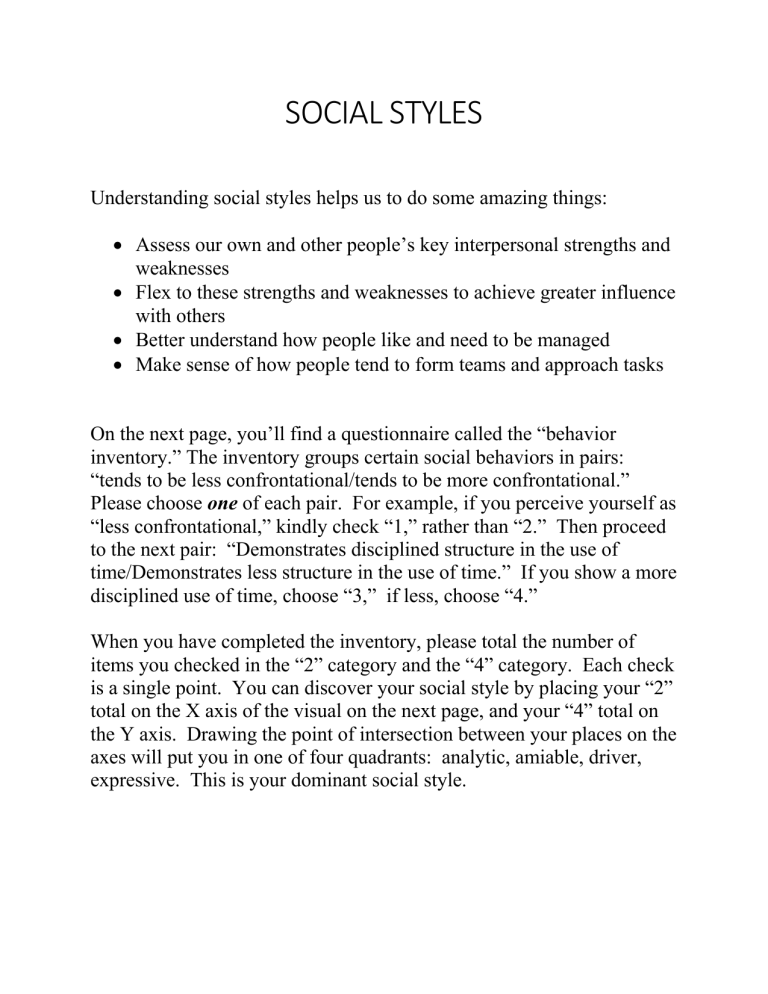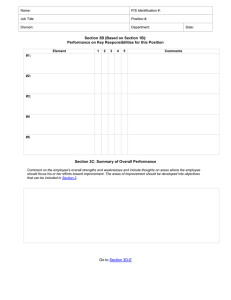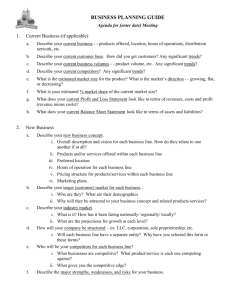
SOCIAL STYLES Understanding social styles helps us to do some amazing things: • Assess our own and other people’s key interpersonal strengths and weaknesses • Flex to these strengths and weaknesses to achieve greater influence with others • Better understand how people like and need to be managed • Make sense of how people tend to form teams and approach tasks On the next page, you’ll find a questionnaire called the “behavior inventory.” The inventory groups certain social behaviors in pairs: “tends to be less confrontational/tends to be more confrontational.” Please choose one of each pair. For example, if you perceive yourself as “less confrontational,” kindly check “1,” rather than “2.” Then proceed to the next pair: “Demonstrates disciplined structure in the use of time/Demonstrates less structure in the use of time.” If you show a more disciplined use of time, choose “3,” if less, choose “4.” When you have completed the inventory, please total the number of items you checked in the “2” category and the “4” category. Each check is a single point. You can discover your social style by placing your “2” total on the X axis of the visual on the next page, and your “4” total on the Y axis. Drawing the point of intersection between your places on the axes will put you in one of four quadrants: analytic, amiable, driver, expressive. This is your dominant social style.



